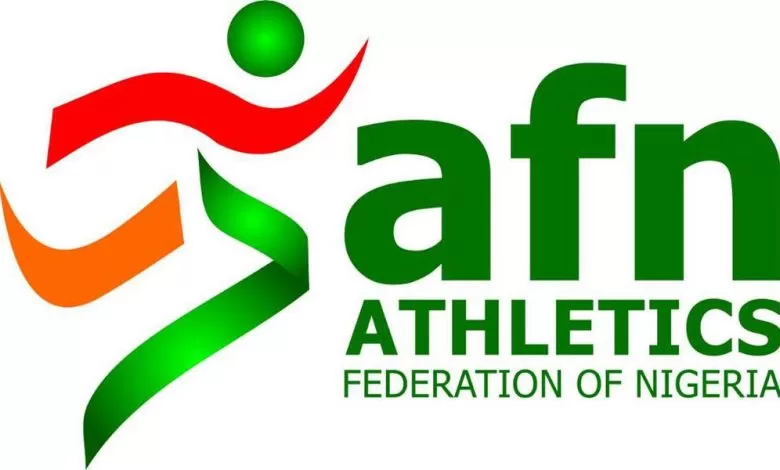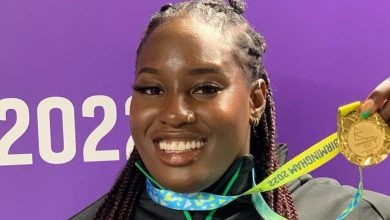AFN faces governance crisis, risks World Athletics’ ban if..

The Athletics Federation of Nigeria (AFN) is facing a governance crisis following the release, Tuesday, of new election guidelines by the National Sports Commission (NSC) for the National Sports Federations’ elections.
The guidelines—intended to standardize governance across federations—contradict key provisions of AFN’s constitution, raising concerns that Nigeria could face sanctions from World Athletics, including a potential ban from international competitions and withholding of grants and other funding opportunities.
The AFN constitution outlines a governance structure designed to maintain independence and safeguard the federation’s autonomy.
However, the NSC guidelines impose, inter-alia, new eligibility criteria and voting restrictions which directly conflict with AFN Constitution.
According to sources within AFN, if the federation is perceived to be under excessive government influence, World Athletics could view this as a violation of international sports governance principles.
International Sports Federations view this as third party interference and have never been afraid of wielding the big stick.
In the past, federations all over the World, including Nigeria, have faced sanctions or outright suspensions for failing to uphold independent election processes.
In 2022, Nigeria was banned from all international basketball events following government intervention in the workings of the Nigeria Basketball Federation, NBBF.
The Federal Government had directed the immediate withdrawal of its national teams from all international competitions for two years which FIBA deemed an unnecessary interreference in the affairs of the NBBF especially after the Sports Ministry its guidelines for the conduct of the Federation’s board election in 2021.
World Athletics CEO, Jon Ridgeon, in 2021, wrote the then Minister of Sports, Sunday Dare, reiterating the international governing body’s stance that the Minister’s interference in the internal crisis in the AFN between Ibrahim Gusau, its President, and some of his board members was needless and that only the athletics people could resolve the crisis in the Federation.
The NSC looks to be oblivious of this as it has taken the vindictive path by barring any person or persons who, inter-alia, ‘has not been involved in any media campaign to disparage the National Sports Commission, Nigeria Olympic Committee, its officials or the Federation in which he is vying for an elective office.’
This undemocratic step, as contained in the NSC eligibility rule, is alien to the eligibility rule (article 9) in the AFN Constitution (2023 as amended).
For the avoidance of doubt, a person seeking to be an AFN board ember (in any capacity), or to remain in office as an AFN board member (in any capacity) must be eligible in accordance with Article 9 (Eligibility) of the AFN Constitution and not by any other rules outside the provisions of the Federation’s guiding document.
Bosun Tijani, the current Nigeria Minister of Digital economy who the opposition has praised to high heavens for his impact in the Bola Tinubu administration was a known critic of not just the ruling party but all politicians before the 2023 elections.
But Tinubu did not toe the path the NSC leadership looks to want to take now as he nominated Tijani to be in his cabinet and was approved by the Senate.
The Guidelines also make the setting up of the Electoral Committee the principal responsibility of the NSC when the AFN Constitution (2023 as amended) makes clear the procedure for setting up its Electoral Committee viz via the Federation’s board which will transmit a proposal to the Federation’s Congress for approval.
The AFN Constitution gives the Electoral Committee set up by the board and approved by the Congress and not the NSC, the power to conduct elections into the board of the Federation.
The NSC Guidelines also expanded the list of eligible voters at the zonal level and reduced it at the national level.
‘The Chairman, Secretary, Athlete, Coaches, Referees and Women rep from each state associations (6 in number) shall constitute the electorate for the zonal elections in their respective sport,’ the NSC wrote in the Guidelines while the AFN Constitution is clear on who the delegates should be at all its congresses, whether it is general, extraordinary or elective.
Article 10.3 subsection 1 (10.3.1) of the AFN Constitution makes it clear who the delegates can be.
‘Each member states association will be entitled to send not more than two (2) delegates. The 1st delegate must be the Chairman of the State Association and 2nd delegate shall be the Secretary. Only one of them will be allowed to vote. E-voting is allowed,’ read article 10.3.1.
This article is also applicable to the elections of the President and the Vice Presidents contrary to the NSC Guidelines which make ‘the Representatives of all the 13 Constituencies shall form the electorate at the National elections.’
The NSC Guidelines also make provision for just a Vice President while the AFN Constitution makes provision for two vice presidents with one of them being a woman, as advised by World Athletics
The NSC looks to have forgotten that the AFN is an association of member state associations.




